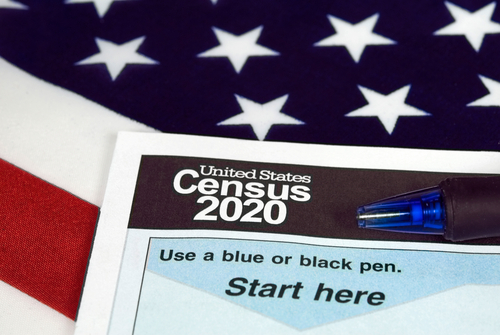Supreme Court agrees to hear challenge to citizenship question on census

Photo by Maria Dryfhout/Shutterstock.com.
The U.S. Supreme Court on Friday agreed to decide whether a citizenship question may be added to the 2020 census and scheduled arguments for the case in April.
The court granted cert before any appeal to the 2nd U.S. Circuit Court of Appeals at New York and put the case “on an unusually fast track,” the New York Times reports. The apparent aim is to issue a decision before census forms are printed in June. The National Law Journal and the Washington Post also have coverage of the cert grant; an American Civil Liberties Union press release is here.
U.S. District Judge Jesse Furman of Manhattan had ruled in the case last month, finding that Commerce Secretary Wilbur Ross violated the Administrative Procedure Act in a “veritable smorgasbord” of ways when he added the question.
Furman said Ross ignored statutes on data collection and notice to Congress, acted arbitrarily, and concealed the true basis for his decision. But Furman found no violation of the due process clause because the plaintiffs did not prove Ross was motivated by discrimination against noncitizens and minorities.
Ross had said he was adding the citizenship question in response to a request from the Department of Justice for better citizenship data to assist in its enforcement of the Voting Rights Act of 1965. But Furman said the evidence showed that Ross had persuaded the DOJ to make the request, showing his stated reason was pretextual.
The Supreme Court had blocked Ross’ deposition in October but allowed the deposition of a DOJ lawyer to go forward. In November, the Supreme Court allowed trial of the case.
Two lawsuits have been consolidated in the case. One was filed by 18 states, as well as several cities and counties. The other was filed by several advocacy groups. The American Civil Liberties Union, the New York Civil Liberties Union and Arnold & Porter had sued on behalf of the groups.
The plaintiffs have argued that the question will reduce head count because immigrants will be reluctant to participate.
The House of Representatives has filed an amicus brief supporting the challengers, according to the National Law Journal. The brief points out that an inaccurate count will affect state representation in the House as well as the flow of federal dollars to the states.



